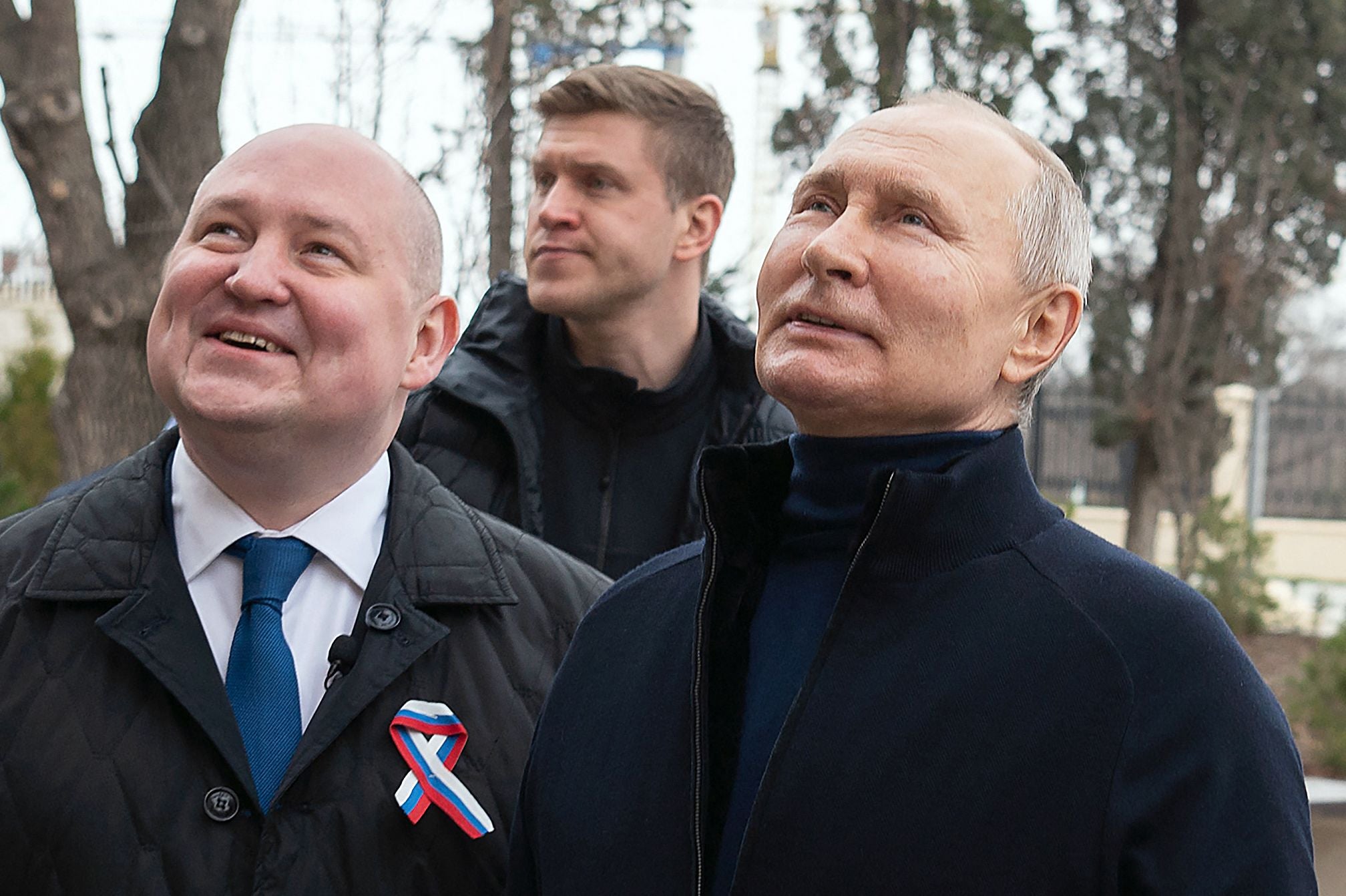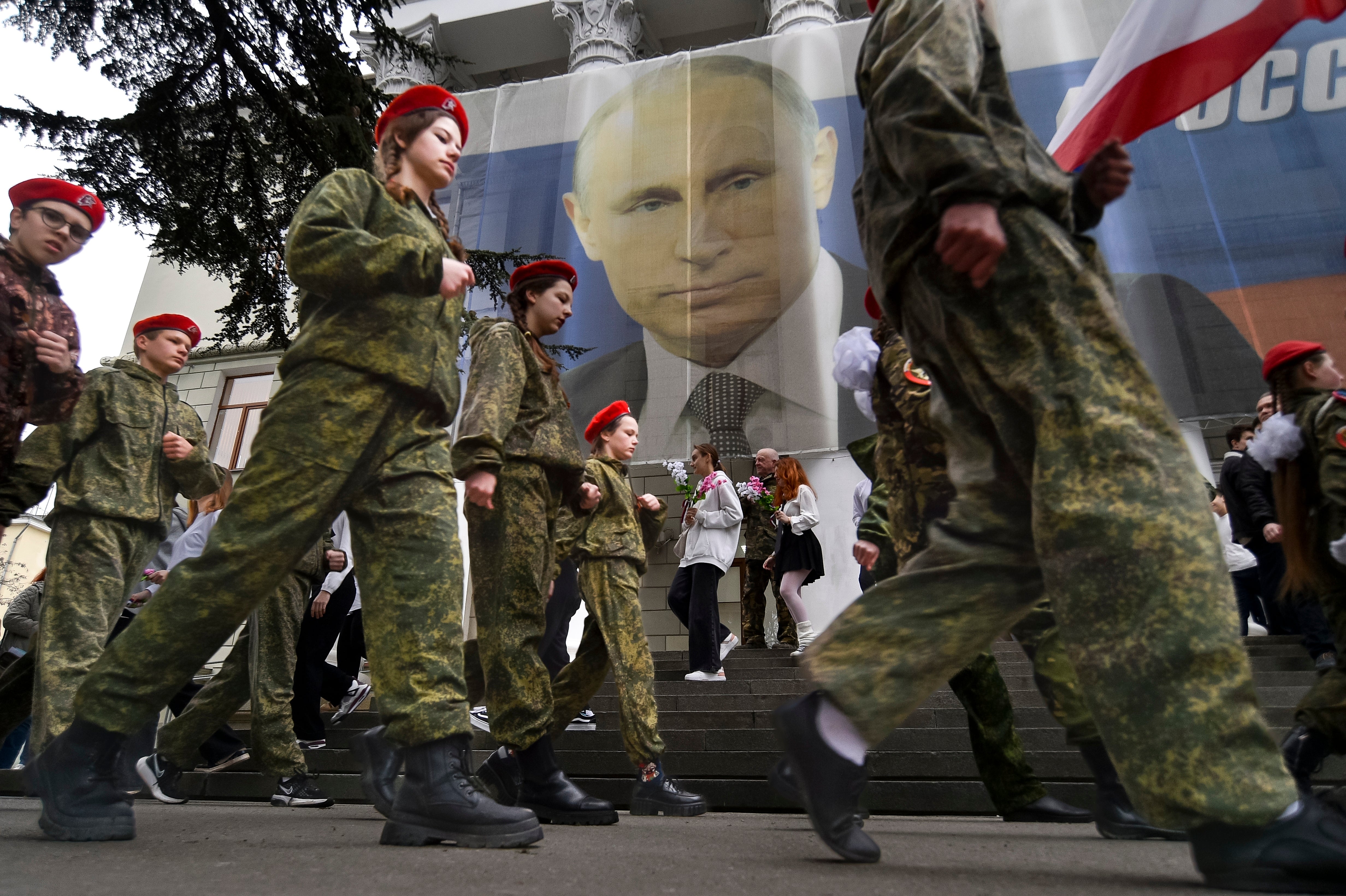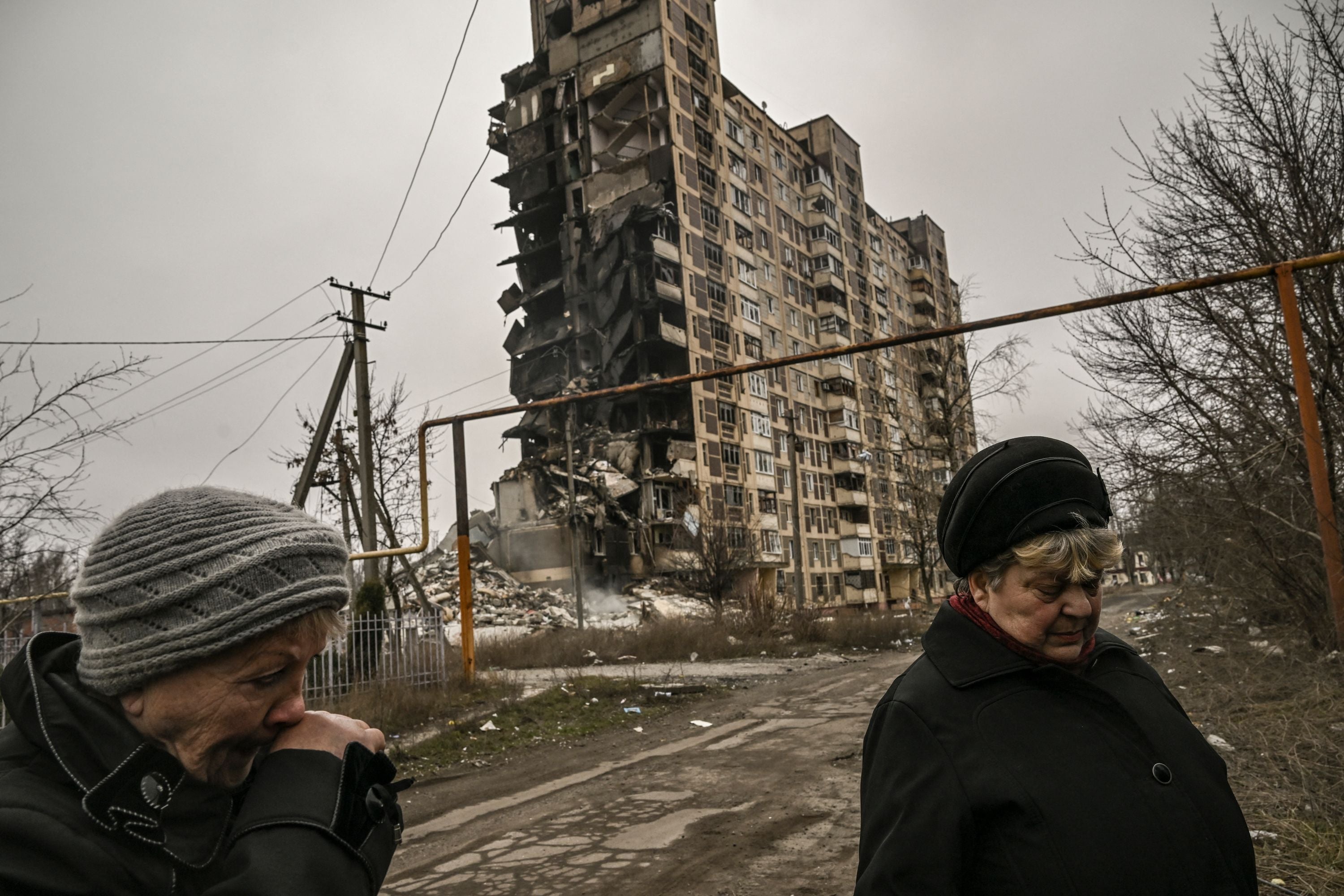Vladimir Putin visits Crimea to mark nine years since annexation as Ukraine grain deal extended
Russian president headed to Sevastopol hours after ICC issued warrant for his arrest on war crimes charges
Your support helps us to tell the story
From reproductive rights to climate change to Big Tech, The Independent is on the ground when the story is developing. Whether it's investigating the financials of Elon Musk's pro-Trump PAC or producing our latest documentary, 'The A Word', which shines a light on the American women fighting for reproductive rights, we know how important it is to parse out the facts from the messaging.
At such a critical moment in US history, we need reporters on the ground. Your donation allows us to keep sending journalists to speak to both sides of the story.
The Independent is trusted by Americans across the entire political spectrum. And unlike many other quality news outlets, we choose not to lock Americans out of our reporting and analysis with paywalls. We believe quality journalism should be available to everyone, paid for by those who can afford it.
Your support makes all the difference.Russian president Vladimir Putin made a surprise visit to Crimea on Saturday to mark the ninth anniversary of the Black Sea peninsula’s annexation from Ukraine.
His trip came a day after the International Criminal Court issued an arrest warrant on charges of war crimes, alleging he bears personal responsibility for the abduction of children from Ukraine following Russia’s invasion.
In Sevastopol, Crimea’s largest city, Mr Putin met Moscow-installed governor Mikhail Razvozhaev, with whom he visited an art school and a children’s centre that are part of a project to develop a historical park on the site of an ancient Greek colony, Russian state news agencies said.

Russia annexed Crimea from Ukraine in 2014, in a move most of the world denounced as illegal and which soured relations between Moscow and the West. Ukrainian president Volodymyr Zelensky has said any peace settlement would involve Russia withdrawing from the peninsula as well as the regions it has occupied since last year.
Mr Putin has shown no intention of relinquishing the Kremlin’s gains. Instead, he stressed on Friday the importance of holding Crimea.
“Obviously, security issues take top priority for Crimea and Sevastopol now,” he said. “We will do everything needed to fend off any threats.”
The ICC’s arrest warrant was the first issued against a leader of one of the five permanent members of the UN Security Council. It was immediately dismissed by Moscow and welcomed by Ukraine as a major breakthrough. But the chances of Mr Putin facing trial at the ICC are very slim as Moscow does not recognise the court’s jurisdiction nor will it extradite Russian nationals.

In Ukraine, authorities reported widespread Russian attacks between Friday night and Saturday morning, killing one person in Donetsk Oblast, where Russia continues to concentrate the bulk of its attacks on Bakhmut and other parts of the eastern industrial region.
The Ukrainian military said Moscow launched 34 airstrikes and one missile strike, while Kyiv’s air force command said 11 out of 16 drones were shot down during attacks that targeted the capital, Kyiv, and the western Lviv province, among other areas.
With no end in sight to hostilities, the United Nations and Turkish president Recep Tayyip Erdogan announced that a wartime deal allowing grain to be shipped from Ukraine’s Black Sea ports to countries in Africa, the Middle East and Asia was extended, although neither said for how long.

Ukraine said the deal, which is linked to efforts to support Russian food and fertiliser exports, had been renewed for 120 days, the period that Kyiv and Turkey, which has mediated in the deal, and the UN wanted.
However, Russian foreign ministry spokesperson Maria Zakharova said the agreed period was only 60 days after Russia warned any further extension beyond mid-May would depend on the removal of some western sanctions. Russia has complained its fertiliser is not reaching global markets despite the deal.
Earlier, in a further attempt to strengthen the Kremlin’s hold on Russian discourse surrounding the war, Mr Putin signed a law that imposes heavy fines and jail terms of up to 15 years for discrediting or spreading misleading information about volunteers or mercenaries fighting in Ukraine. The Wagner Group of mercenaries has taken a key role in Ukraine and recently launched a drive to recruit 30,000 more soldiers.
Additional reporting by Associated Press





Join our commenting forum
Join thought-provoking conversations, follow other Independent readers and see their replies
0Comments